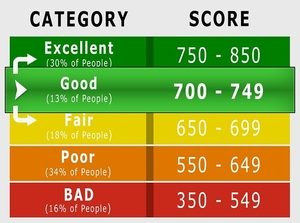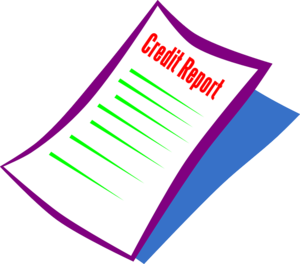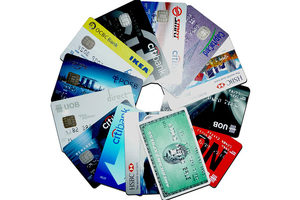You may have heard about "derogatory marks" on credit reports.
Sidebar: Due to the COVID-19 Crisis this article has been updated
Now that you have received and reviewed your free annual credit report you notice that there are some derogatory marks on your report. Your next step is to find the best solutions to remove the marks that are on your report.
Oh! Before I go too far, let me ask, do you presently have your latest free annual credit report? If you have it, cheers to you. If you do not have it, let’s get it. Get your Free Annual Credit Report.
What is Considered Derogatory?
According to Experian, a derogatory account is one that is seriously past due. Most commonly, the term derogatory refers to accounts that are 60 or 90 days past due or more. These derogatory credit marks act as red flags to lenders using your credit report to evaluate you.
Derogatory marks are meant to reflect mistakes or events that show you have an imperfect payment history. If lenders see too many, they might offer you a more expensive product or reject your application altogether.
Each derogatory mark will lower your credit score and make you less creditworthy, but some are more serious than others. Additionally, some derogatory marks will affect your credit less as they age. Late payment from this year, for instance, will look worse than one from five years ago.
If you have derogatory credit marks, being aware of them is the first process to fix them and improve your credit.
A lower score coupled with a derogatory mark may result in having a hard time getting approved for credit or may get less-than-ideal credit terms.
Did You see any Derogatory Marks on Your Credit Report?
You might already have some idea that you have derogatory credit. For instance, you might be aware that you missed a payment or declared bankruptcy recently.
Or perhaps you applied for a credit card or loan and were rejected. If so, don’t let it slide. Contact the lender and asks why you were denied.
The lender is required under the Equal Credit Opportunity Act to tell you the specific reasons it considered you non-creditworthy, as stated on the Consumer Financial Protection Bureau (CFPB) website.
Many lenders will send this information to you as a matter of courtesy. If a lender doesn’t, simply request it within 60 days of rejection. The reasons can alert you to potentially derogatory marks on your credit.
Types of Derogatory Marks
When you’re checking your credit report for negative information, it helps to know what to look for.
Here are some types of derogatory marks that can end up on your credit report.
| What can lead to a derogatory mark | What is it and what happens? | How long might the derogatory mark appear on a credit report? |
|---|---|---|
| Late payments | An account payment that is past due. This is generally the only form of a “minor” derogatory mark. After the payment is late, its severity may increase every 30 days it’s not paid. | Seven years from the date of a delinquent payment. |
| An account in collections (or charge-off) | When a creditor thinks you ultimately won’t pay what you owe, usually after several missed payments, it can write or “charge off” the account for tax purposes. After a creditor has charged off the account, it can sell it to a third-party collections agency. The collections company will try to get a payment from the borrower. | Seven years from the first date of a delinquent payment. |
| Bankruptcy | This is a special legal proceeding you can enter to request relief from debt obligations. You’ll either pay back some or none of your debt. | 7 to 10 years from the filing date, depending on the type of bankruptcy. |
| Civil judgment | If you’ve lost a civil lawsuit that requires you to pay debt or damages, it can appear on your credit report. | Paid civil judgment: Seven years from the date the judgment was filed. Unpaid civil judgment: The seven-year time frame may be renewed depending on local laws. |
| Debt settlement | You and a creditor can reach an agreement where you pay back only part of the debt you owe. | Seven years from either the date the debt was settled or from the date of the first delinquent payment, depending on whether there were missed payments. |
| Foreclosure | A foreclosure can happen if you fall seriously behind or miss many of your mortgage payments. The bank will attempt to force a sale of the home, which is then used as collateral for the mortgage loan. | Seven years from the filing date. |
| Tax lien | If you fail to pay your taxes, the federal government will attempt to collect your debt by placing a lien, which is a claim, against your property. | Paid tax lien: Seven years from the filing date. Unpaid tax lien: Can remain on a report indefinitely. |
Here are My Best Solutions Ever for Derogatory Marks on Your Credit Report
Review your credit report – sounds familiar, does it not?
Your credit report may show “closed” and “open” derogatory marks. Closed derogatory marks refer to negative items about closed accounts, such as those in collection, including accounts that have been charged-off. An open derogatory mark refers to negative information about an open account, such as your current credit cards or loans.
Make sure all of the information on the report is accurate, including your personal information, open and closed accounts, and negative information. Check for delinquent payment under all your accounts, and look for public records and accounts in collections.
Dispute incorrect derogatory marks
If you have a derogatory mark on your Experian credit report and it’s an error, you can file a dispute using Experian dispute report. The credit bureaus are required to investigate disputes related to trade lines within 30 days of the filing date.
Start doctoring on your credit
Even if the derogatory mark is legitimate, you can start improving your credit. Make payments on any accounts that are past due, and then consistently make the minimum payments on time. Keep your account balances low and be very cautious about applying for new credit. I say “if you don’t absolutely need it, then leave it.”
Wait for the mark to fall off your report
I know this sounds bad, and it is not my favorite idea. However, it is a legal strategy. Sometimes you just have to take advantage of the system that takes advantage of you. Bad credit will get better and improve with time- as long as you prevent further missteps or derogatory marks. Federal student loans, however, do not fall off of your report.
Dealing with derogatory credit can be discouraging. It might take time and patience to see progress. Nevertheless, by learning more about your credit score, you’re moving in the right direction. Keep building on it, and hopefully, your derogatory credit and mistakes will soon be in the past.
While reviewing your report look for a summary of derogatory credit marks. Equifax, for example, has a section listing “negative information” on its credit reports.

So, what can you do to minimize the impact of Covid-19 on your credit?
- Talk to your lenders and creditors and see if any assistance is available.
- Pay what you can. To avoid having late payments show up on your credit reports, try to make at least the minimum payment on accounts, or pay any amount you and the lender or creditor agree upon.
- Consider adding a consumer statement to your credit reports. Contact Experian, TansUnion and Equifax to inquire about adding a statement to your credit report.
An example of a consumer statement: “Be advised that the negative accounts on my credit report are related to the Coronavirus. I intend to make these up as soon as I can.”
Bottom Line
Improving your credit is a marathon, not a sprint, there’s no short cut. It takes time.
Check your credit reports at least annually. If you’re fortunate enough not to have any derogatory marks on your credit report kudos to you. It’s important not to rest on your laurels, though, considering that credit –score damage is always lurking around the corner.
The best way to avoid a slip-up is to focus on fundamentals: work with a coach to heighten your awareness and achieve your financial goals.



One thought on “The Best Solutions Ever for Derogatory Marks on Your Credit Report”
Comments are closed.